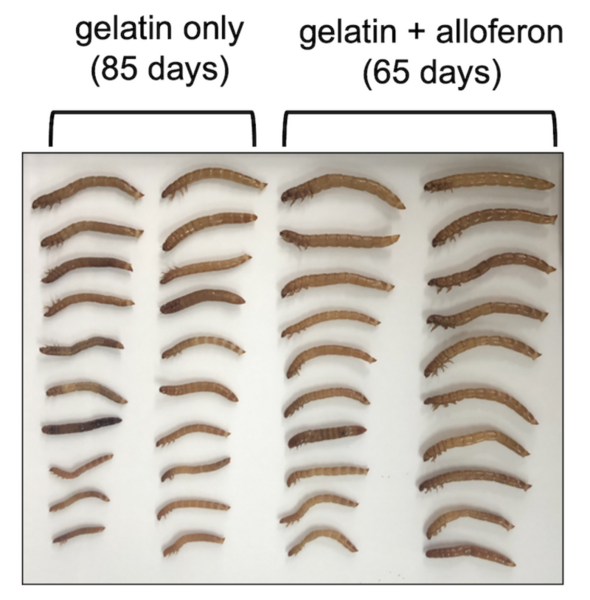Alloferon improves the growth performance and developmental time of mealworms (Tenebrio molitor)
(1) Portsmouth Abbey School, Portsmouth, Rhode Island, (2) Jeonbuk University, Jeollabuk-do, Republic of Korea
https://doi.org/10.59720/22-011
Mealworms (Tenebrio molitor) are important food sources for reptiles, birds, and other organisms, as well as for humans. Due to their outstanding nutritional value, mealworms are in high demand as an alternative food source and are the subject of widespread curiosity. However, the slow growth and low survival rate of mealworms cause problems for mass production. Since alloferon, a synthetic peptide, showed long-term immunological effects on mealworms, we hypothesized that alloferon would function as a growth promoter to maximize mealworm production. We discovered that the overall weight of the alloferon-containing gelatin diet group was 39.5-90% heavier, and the development time of the experimental group was shortened up to 20.6-39.6% than the control group. In addition, 300 nM alloferon significantly boosted cell proliferation of Sf9 cells (insect cells) only after six days of the treatment. Also, we noticed that two proteins were induced in alloferon fed mealworm body tissue and found that one of the proteins was phenoloxidase 1, which may be responsible for increasing growth rate by regulating the production of melanin pigments. Overall, these findings have potential implications in mealworm insect farming because alloferon may foster a sustainable food supply industry.
This article has been tagged with: